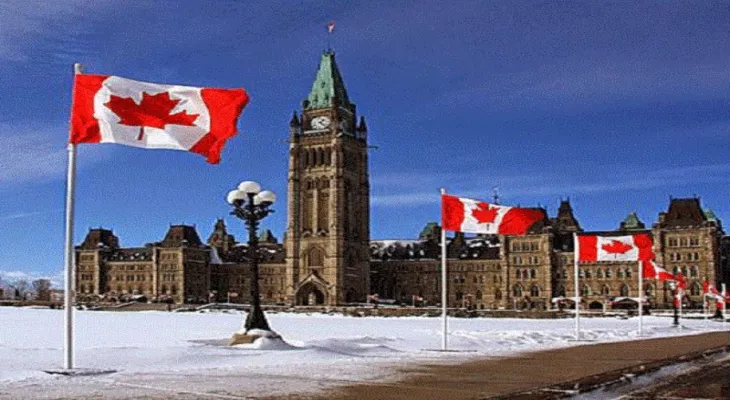Search here
Newspaper
Search here

Arab Canada News
News

Published: December 11, 2023
As part of its efforts to end the ongoing war in the Gaza Strip, the Arab Islamic Ministerial Committee, composed of foreign ministers of 14 Arab and Islamic countries, met with the Prime Minister of Canada, Justin Trudeau, in Ottawa on Saturday, December 9, 2023. The committee discussed with Trudeau the tragic humanitarian situation in Gaza and ways to achieve a ceasefire and establish peace in the region.
What is the Arab Islamic Ministerial Committee?
The Arab Islamic Ministerial Committee is a body formed in 2022 on an initiative from the Kingdom of Saudi Arabia, and includes the foreign ministers of the following countries: Saudi Arabia, Egypt, Jordan, Morocco, Kuwait, the United Arab Emirates, Bahrain, Sudan, Iraq, Algeria, Turkey, Malaysia, Indonesia, and Pakistan. The committee aims to strengthen solidarity and cooperation among Arab and Islamic countries in facing regional and international challenges, especially the Palestinian cause and the war on terrorism.
What are the committee’s objectives for the visit to Canada?
The committee visited Canada to meet with its Prime Minister, Justin Trudeau, and a number of Canadian officials to discuss several important topics, most notably:
The immediate and complete ceasefire in the Gaza Strip, which has been subjected to continuous bombardment by Israeli forces for more than two months, resulting in the death of over thousands of Palestinians, including many children, injury of more than 10,000 others, and the destruction of thousands of homes and vital facilities.
Efforts for joint international action to stop Israeli violations of international law and human rights in the occupied Palestinian territories, especially in East Jerusalem, which is witnessing a campaign of Judaization, displacement, and division of Al-Aqsa Mosque, the third holiest site in Islam.
Returning to the path of just and comprehensive peace based on the two-state solution according to international references and the Arab Peace Initiative, which guarantees the establishment of an independent State of Palestine with East Jerusalem as its capital on the 1967 borders.
Enhancing bilateral relations between Arab and Islamic countries and Canada in various fields, whether political, economic, cultural, or humanitarian.
Coordination and consultation on regional and international issues of common interest, such as the political solution in Syria, Yemen, Libya, and Iraq, and combating terrorism, extremism, and terrorist organizations such as ISIS, Al-Qaeda, and Hezbollah.
What is Canada’s position on the war in Gaza?
Canada is one of the countries friendly to the Palestinian people and has expressed its deep concern over the violent escalation in Gaza. Canada has called for a ceasefire and protection of civilians. It has also announced humanitarian aid worth 25 million Canadian dollars to the Palestinians through the United Nations Relief and Works Agency for Palestine Refugees (UNRWA), the International Committee of the Red Cross, and other non-governmental organizations.
What are the results of the visit?
The visit was successful and fruitful, resulting in consensus of views and positions between the committee and Trudeau on most issues, especially the Palestinian cause. The committee and Trudeau issued a joint statement affirming the following points:
The immediate and complete ceasefire in Gaza, adherence to relevant international resolutions, and facilitation of delivery of humanitarian aid and reconstruction.
Stopping Israeli violations in East Jerusalem, protecting the Holy Sanctuary in Jerusalem, and respecting the religious, cultural, and historical rights of the Palestinian people.
Working to revive the peace process between Palestinians and Israelis based on the two-state solution according to international references and the Arab Peace Initiative, which enjoys broad support from the international community.
Enhancing bilateral relations between Arab and Islamic countries and Canada in various fields, and cooperating to face regional and international challenges such as the political solution in Syria, Yemen, Libya, and Iraq, and combating terrorism, extremism, and terrorist organizations such as ISIS, Al-Qaeda, and Hezbollah.
Affirming the friendship and mutual appreciation between the Arab and Islamic peoples and the Canadian people, and respecting diversity, tolerance, and dialogue among cultures and civilizations.
Comments